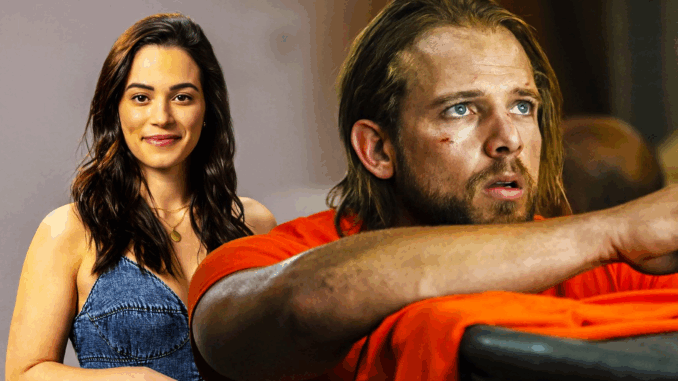
Love Born in Fire
From their first interaction, it was clear Bode and Gabriela weren’t going to follow a conventional love story. Both characters were dealing with emotional baggage. Both were trying to define who they were in a world that constantly tried to put them in a box. Together, they explored what it means to fall in love while still learning how to love themselves.
Cycles of Distance and Desire
The push and pull between Gabriela and Bode was never about petty drama—it was about deep-seated fears. Gabriela wanted stability; Bode feared he’d destroy it. He carried the guilt of his past, and she bore the pressure of trying to help him heal while maintaining her own boundaries.
Their relationship was sometimes messy, often painful, and always human. And it echoed a truth many viewers connected with: love is not always about being ready—it’s about being willing.
Breaking the Pattern

Gabriela’s evolution as a character was defined by her willingness to say “enough.” She chose to step back not out of spite but out of self-preservation. Her choice to walk away from Bode, even as they both still cared for each other, was revolutionary on a show where happy endings are often rushed.
In doing so, Fire Country honored the importance of self-love and timing. It showed that sometimes, walking away is the most loving thing someone can do.
A Love That Changed Them
Even though their romance may not survive Season 4 (especially with Gabriela’s uncertain future in the show), their relationship changed both characters forever. Bode learned what it means to be emotionally available. Gabriela learned that she didn’t have to fix anyone to be worthy of love.
Realism Over Fantasy
Too many shows turn love stories into fantasy. But Fire Country let theirs burn slowly, painfully, and truthfully. Gabriela and Bode’s story wasn’t about “forever” – it was about the moment. The lessons. The pain and healing in between.
Some love stories don’t last forever. But they last long enough to change everything. Gabriela and Bode were proof that even the most imperfect relationships can help us grow—and maybe, that’s the kind of romance we need more of on TV.
